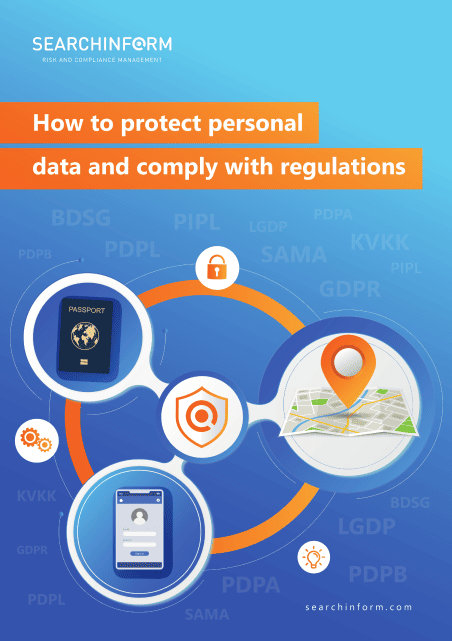What is Data Management as a Service (DMaaS)?
- DMaaS vs. Traditional Data Management Methods
- Traditional Data Management Methods:
- DMaaS:
- Demystifying DMaaS: How It Works
- 1. Data Collection:
- 2. Data Transportation:
- 3. Data Storage and Protection:
- 4. Data Management and Governance:
- 5. Data Access and Delivery:
- Real-World Applications of DMaaS
- 1. Healthcare:
- 2. Retail:
- 3. Finance:
- 4. Media and Entertainment:
- 5. Manufacturing:
- Key Takeaways:
- DMaaS: A Strategic Investment for Business Growth
- 1. Unlocking Operational Efficiency:
- 2. Fueling Data-Driven Insights:
- 3. Fostering Agility and Innovation:
- 4. Enhancing Security and Compliance:
- The Future of DMaaS
- 1. Increased Adoption and Market Growth:
- 2. Deeper Integration and Democratization of Data:
- 3. Enhanced Security and Compliance Focus:
- 4. Rise of Artificial Intelligence and Machine Learning:
- 5. Edge Computing and Decentralization:
- 6. Focus on Sustainability and Green Data Management:
- 7. Hyper-personalization and Customer-Centric Focus:
- 8. Emergence of Specialized DMaaS Solutions:
- 9. Blockchain and Data Security:
- 10. Continuous Innovation and Evolution:
- Enhancing Data Security: SearchInform Partners with DMaaS for Robust Protection
Data Management as a Service (DMaaS) is a cloud-based service that helps organizations manage their data more efficiently and effectively. It provides a centralized platform for storing, protecting, and analyzing data from various sources, such as on-premises databases, cloud applications, and social media.
Some of the key benefits of DMaaS:
- Reduced costs: DMaaS eliminates the need for organizations to invest in and maintain their own data management infrastructure. This can save a significant amount of money on hardware, software, and personnel.
- Increased agility: DMaaS allows organizations to quickly and easily scale their data storage and processing capabilities up or down as needed. This makes it easier to adapt to changing business requirements and take advantage of new opportunities.
- Improved data security: DMaaS providers offer a variety of security features, such as encryption, access controls, and disaster recovery. This can help organizations protect their data from unauthorized access, loss, and damage.
- Simplified data governance: DMaaS can help organizations comply with data privacy regulations and ensure that their data is used responsibly.
Here are some of the typical features that DMaaS has to offer:
- Data backup and recovery: DMaaS can be used to back up data from various sources and restore it in the event of a disaster.
- Data archiving: DMaaS can be used to archive old data that is no longer needed for day-to-day operations.
- Data analytics: DMaaS can be used to analyze data from various sources to gain insights and make better business decisions.
- Data security: DMaaS providers offer a variety of security features to protect data from unauthorized access, loss, and damage.
- Data governance: DMaaS can help organizations comply with data privacy regulations and ensure that their data is used responsibly.
- DMaaS is a rapidly growing market, and there are a number of vendors offering DMaaS solutions. Some of the leading vendors include Cohesity, Commvault, Dell Technologies, Druva, and Veritas.
If you are considering using DMaaS, here are a few things to keep in mind:
- Your data needs: Not all DMaaS solutions are created equal. Make sure to choose a solution that meets your specific data needs.
- Your budget: DMaaS pricing can vary depending on the features and services you need. Be sure to get quotes from several vendors before making a decision.
- Your security requirements: Make sure to choose a DMaaS provider that offers the level of security that you need.
DMaaS vs. Traditional Data Management Methods
Choosing between DMaaS and traditional data management methods can be a crucial decision for any organization depending on its needs and resources. Here's a breakdown of their key differences to help you weigh the options:
Traditional Data Management Methods:
Pros:
- Customization: You have complete control over your data infrastructure and software, allowing for tailor-made solutions.
- Security: On-premises data offers direct control and potential for greater security.
- Upfront costs: Initial hardware and software investment can be lower than ongoing DMaaS fees.
Cons:
- High IT expertise: Requires dedicated IT staff for maintenance, updates, and security.
- Scalability limitations: On-premises infrastructure can be costly to scale as data volumes grow.
- Complexity: Managing disparate systems and tools can be cumbersome and time-consuming.
- Vendor lock-in: You may become reliant on specific software or hardware vendors.
- Data Management as a Service (DMaaS):
Its discovery entails:
DMaaS:
Pros:
- Reduced costs: You only pay for the data storage and services you use, eliminating upfront infrastructure costs.
- Scalability: DMaaS platforms easily scale up or down based on your needs.
- Simplicity: DMaaS offers a centralized platform, removing the burden of managing multiple tools and systems.
- Agility: Rapid deployment and access to new features and functionalities.
- Security: Many DMaaS providers offer robust security features and disaster recovery plans.
Cons:
- Limited customization: You may have less control over the underlying infrastructure and software.
- Vendor dependence: Data security and access rely on the DMaaS provider's infrastructure and service levels.
- Potential compliance challenges: Data residency and privacy regulations may require additional considerations.
When to choose DMaaS:
- Your data volume is rapidly growing or unpredictable.
- You need a flexible and scalable data management solution.
- You want to reduce IT complexity and operational costs.
- You value ease of use and access to new features and functionalities.
When to choose traditional methods:
You require highly customized data management solutions.
- Security and data control are paramount concerns.
- You have upfront budget constraints and dedicated IT expertise.
- Data residency and compliance regulations necessitate direct control.
Ultimately, the best choice depends on your specific needs, budget, and IT capabilities. Carefully evaluate your data management requirements, security considerations, and long-term goals before making a decision. I hope this information helps you choose the best approach for your organization.
Demystifying DMaaS: How It Works
Data Management as a Service (DMaaS) might sound complex, but its core operation boils down to a streamlined process. Imagine it like a well-oiled machine with distinct stages, working seamlessly to manage your precious data. Here's a breakdown of the key steps:
1. Data Collection:
- Think of your data scattered across various sources like on-premises servers, cloud applications, and even mobile devices. DMaaS acts like a data vacuum, sucking up information from all these endpoints.
- This can be done through lightweight agents installed on devices or via API integrations with cloud platforms.
2. Data Transportation:
- The collected data then embarks on a secure journey to the DMaaS provider's infrastructure. This transfer happens over encrypted channels, ensuring your information remains safe during transit.
3. Data Storage and Protection:
- Once it reaches its destination, the data is stored in the DMaaS provider's robust and scalable storage systems. Think of it as a giant, secure vault for your valuable information.
- DMaaS also employs various security measures like encryption, access controls, and intrusion detection to safeguard your data from unauthorized access, loss, or damage.
4. Data Management and Governance:
This is where the magic happens. DMaaS offers a centralized platform for managing your data lifecycle, from backups and archiving to data analysis and compliance.
You can easily:
- Schedule automated backups to ensure you never lose critical data.
- Archive inactive data to free up storage space.
- Leverage built-in analytics tools to gain insights from your data and make informed decisions.
- Implement data governance policies to ensure compliance with regulations.
5. Data Access and Delivery:
- Need to access your data? DMaaS makes it a breeze. You can:
- Retrieve data from the platform through a user-friendly interface.
- Integrate DMaaS with your existing applications for seamless data flow.
- Share data securely with authorized users both inside and outside your organization.
Remember:
- The specific features and functionalities of Data Management as a service will vary depending on the provider you choose.
- Some DMaaS offerings focus on specific aspects like backup and recovery, while others offer a comprehensive suite of data management tools.
Overall, DMaaS simplifies cloud data management by centralizing and automating many tedious tasks, freeing you to focus on what truly matters: extracting value from your data.
Real-World Applications of DMaaS
Data management as a service isn't just a fancy technology; it's revolutionizing how organizations of all sizes manage their data. Let's dive into some real-world examples showcasing the diverse power of DMaaS in action:
1. Healthcare:
- Hospitals: DMaaS can centralize patient data from various sources, enabling a holistic view for improved diagnosis, treatment planning, and personalized care.
- Pharmaceutical companies: DMaaS facilitates secure research data collaboration and analysis, accelerating drug discovery and development.

2. Retail:
- E-commerce platforms: DMaaS helps analyze customer data to personalize recommendations and marketing campaigns, boosting sales and customer satisfaction.
- Brick-and-mortar stores: DMaaS can gather data from loyalty programs and in-store sensors to optimize inventory management and targeted promotions.
3. Finance:
- Banks: DMaaS enables secure and compliant data storage for customer transactions and financial records, ensuring regulatory adherence.
- Fintech startups: DMaaS provides a scalable platform for analyzing financial data and developing innovative financial products and services.
4. Media and Entertainment:
- Streaming platforms: DMaaS helps analyze viewer data to personalize content recommendations and optimize content creation strategies.
- Gaming companies: DMaaS can manage in-game data for user analytics and personalized gaming experiences.
5. Manufacturing:
- Smart factories: DMaaS can collect and analyze data from sensors on production lines to optimize efficiency and predict maintenance needs.
- Supply chain management: DMaaS facilitates real-time data sharing between manufacturers and suppliers, improving logistics and inventory visibility.
- These examples just scratch the surface of DMaaS's potential. Its flexibility and scalability make it suitable for various industries and organizations, regardless of size or data complexity.
Key Takeaways:
- DMaaS is not limited to specific industries; its applications are boundless.
- It empowers businesses to gain valuable insights from their data, leading to improved decision-making and operational efficiency.
- DMaaS offers a secure and scalable approach to data management, making it a valuable tool for organizations of all sizes.
DMaaS: A Strategic Investment for Business Growth
In today's data-driven world, information is power. But raw data alone holds limited value. It's the effective management and utilization of that data that fuels business growth and innovation. This is where Data Management as a Service (DMaaS) emerges as a strategic game-changer.
Investing in DMaaS is not just about streamlining data operations; it's about unlocking a plethora of benefits that empower your organization to thrive in the competitive landscape. Let's delve into how DMaaS can be a strategic investment for your business growth:
1. Unlocking Operational Efficiency:
- Ditch the data silos: DMaaS centralizes your data from diverse sources, eliminating the need for managing multiple fragmented systems. This streamlines data access, simplifies backups and recovery, and boosts operational efficiency.
- Scale with ease: Whether your data volume surges or shrinks, DMaaS adapts seamlessly. No more costly infrastructure upgrades; you only pay for the resources you use, optimizing your IT budget.
- Automate tedious tasks: DMaaS automates data governance tasks like backup, retention, and deletion, freeing up your IT team to focus on strategic initiatives.
2. Fueling Data-Driven Insights:
- Transform data into actionable intelligence: DMaaS provides built-in analytics tools and integrations with BI platforms, enabling you to analyze your data from various angles. Uncover hidden patterns, trends, and correlations to make informed decisions.
- Personalize customer experiences: Leverage your data to understand individual customer preferences and behavior. DMaaS empowers you to deliver targeted campaigns, recommendations, and services, enhancing customer satisfaction and loyalty.
- Gain a competitive edge: Stay ahead of the curve by identifying new market opportunities and developing innovative products and services based on data-driven insights.
3. Fostering Agility and Innovation:
- Embrace change with confidence: DMaaS's flexibility allows you to adapt quickly to changing market conditions and business needs. Respond to disruptions, pivot strategies, and experiment with new ideas with agility.
- Accelerate decision-making: With real-time data at your fingertips, you can make informed decisions faster, improving responsiveness and seizing fleeting opportunities.
- Empower your workforce: DMaaS democratizes data access, enabling employees across all levels to leverage insights for improved performance and collaboration.
4. Enhancing Security and Compliance:
- Protect your valuable data: DMaaS providers offer robust security features like encryption, access controls, and intrusion detection, safeguarding your information from unauthorized access, loss, or damage.
- Navigate compliance with ease: DMaaS facilitates adherence to data privacy regulations by providing tools for data classification, access control, and audit trails. Minimize the risk of fines and reputational damage.
- Build trust and transparency: Demonstrating strong data security and compliance practices fosters trust with customers and stakeholders, strengthening your brand image.
DMaaS is not just a technology; it's a strategic investment in your future. It empowers you to unlock the full potential of your data, drive growth, and achieve sustainable success in the dynamic business landscape.
The specific benefits of DMaaS will depend on your unique business needs and challenges. Don't hesitate to ask for further guidance on how DMaaS can be your springboard for growth and transformation.
The Future of DMaaS
Gazing into the crystal ball of technology, the future of DMaaS (Data Management as a Service) appears bright and brimming with exciting possibilities. Here are some trends and predictions that might shape its evolution:
1. Increased Adoption and Market Growth:
DMaaS will become more mainstream, transcending its early adopter phase and reaching a wider range of organizations of all sizes and across diverse industries. As its benefits become increasingly evident and deployment becomes easier, expect widespread adoption to drive significant market growth.
2. Deeper Integration and Democratization of Data:
DMaaS will move beyond pure data storage and management, seamlessly integrating with existing business applications and tools. This will create a unified data ecosystem, enabling real-time data flow and analysis across various departments, empowering everyone to make informed decisions based on data insights.
3. Enhanced Security and Compliance Focus:
Security and compliance will remain paramount concerns. DMaaS providers will continue to implement cutting-edge security features and develop innovative solutions to tackle emerging threats. Additionally, expect stricter data privacy regulations, driving DMaaS to evolve in tandem with compliance requirements.
4. Rise of Artificial Intelligence and Machine Learning:
AI and ML will become increasingly integrated with DMaaS, transforming data analysis and insights. Advanced algorithms will automate tasks, predict trends, and generate actionable recommendations, further empowering businesses to leverage their data for competitive advantage.
5. Edge Computing and Decentralization:
With the growing volume and velocity of data, edge computing will play a significant role in DMaaS. Data processing and analysis will occur closer to the source, improving latency and minimizing network strain. This could lead to a more decentralized cloud data management landscape.
6. Focus on Sustainability and Green Data Management:
Environmental concerns are gaining traction, and DMaaS will likely embrace green data management practices. Expect increased energy efficiency features, renewable energy utilization, and responsible data disposal solutions within DMaaS offerings.
7. Hyper-personalization and Customer-Centric Focus:
DMaaS will facilitate hyper-personalization by enabling granular customer data analysis and segmentation. Businesses will be able to tailor their products, services, and marketing campaigns to individual customer needs and preferences, fostering deeper engagement and loyalty.
8. Emergence of Specialized DMaaS Solutions:
The DMaaS market will likely see increased specialization, catering to specific industry needs and data types. Customized solutions with pre-configured features and industry-specific compliance considerations will become available, making DMaaS even more accessible and impactful for niche markets.
9. Blockchain and Data Security:
Blockchain technology could offer enhanced security and transparency in DMaaS. Secure data storage and tamper-proof audit trails could become possible, further strengthening trust and building a more secure data ecosystem.
10. Continuous Innovation and Evolution:
The DMaaS landscape will be dynamic, with continuous innovation and evolution driven by technological advancements, changing user needs, and market trends. New features, functionalities, and service models will emerge, making DMaaS even more agile and adaptable to the ever-changing data landscape.
These are just some predictions, and the future of DMaaS is still unfolding. However, one thing is certain: its role in helping organizations manage and leverage their data to achieve success will only become more crucial in the years to come.
Enhancing Data Security: SearchInform Partners with DMaaS for Robust Protection
SearchInform's information security solutions can play a crucial role in securing the data managed within a DMaaS environment. By integrating SearchInform's solutions into DMaaS platforms, organizations can enhance their data security posture and ensure the protection of sensitive information.
Here's how SearchInform's solutions can complement DMaaS:
Data Protection: SearchInform's solutions offer comprehensive data protection measures, including encryption, access controls, and data loss prevention (DLP). By integrating these features into DMaaS platforms, organizations can ensure that their data remains secure and protected from insider threats or disclosure.
Threat Detection and Response: SearchInform's solutions provide advanced threat detection and response capabilities, enabling organizations to identify and mitigate information security threats in real-time. By leveraging these capabilities within DMaaS environments, organizations can proactively detect and respond to security incidents, minimizing the impact of potential leakages.
Compliance Management: SearchInform's solutions help organizations comply with data protection regulations and industry standards, such as GDPR, HIPAA, and PCI DSS. By ensuring compliance within DMaaS environments, organizations can mitigate the risk of regulatory fines and penalties associated with data leakages.
User Behavior Analytics: SearchInform's solutions include user behavior analytics features that enable organizations to monitor and analyze user activities for anomalous behavior. By integrating these capabilities into DMaaS platforms, organizations can identify insider threats and unauthorized access attempts, enhancing overall security.
SearchInform’s information security solutions can complement DMaaS offerings by providing robust data protection, threat detection, compliance management, and user behavior analytics capabilities. By integrating SearchInform's solutions into DMaaS platforms, organizations can enhance their overall data security posture and ensure the protection of sensitive information managed within their environments.
Secure your data with confidence. Explore the synergy between SearchInform and DMaaS today to fortify your organization's defenses against information security threats. Protect your sensitive data now!
Full-featured software with no restrictions
on users or functionality
Company news
SearchInform uses four types of cookies as described below. You can decide which categories of cookies you wish to accept to improve your experience on our website. To learn more about the cookies we use on our site, please read our Cookie Policy.
Necessary Cookies
Always active. These cookies are essential to our website working effectively.
Cookies does not collect personal information. You can disable the cookie files
record
on the Internet Settings tab in your browser.
Functional Cookies
These cookies allow SearchInform to provide enhanced functionality and personalization, such as remembering the language you choose to interact with the website.
Performance Cookies
These cookies enable SearchInform to understand what information is the most valuable to you, so we can improve our services and website.
Third-party Cookies
These cookies are created by other resources to allow our website to embed content from other websites, for example, images, ads, and text.
Please enable Functional Cookies
You have disabled the Functional Cookies.
To complete the form and get in touch with us, you need to enable Functional Cookies.
Otherwise the form cannot be sent to us.

Subscribe to our newsletter and receive a bright and useful tutorial Explaining Information Security in 4 steps!

Subscribe to our newsletter and receive case studies in comics!







